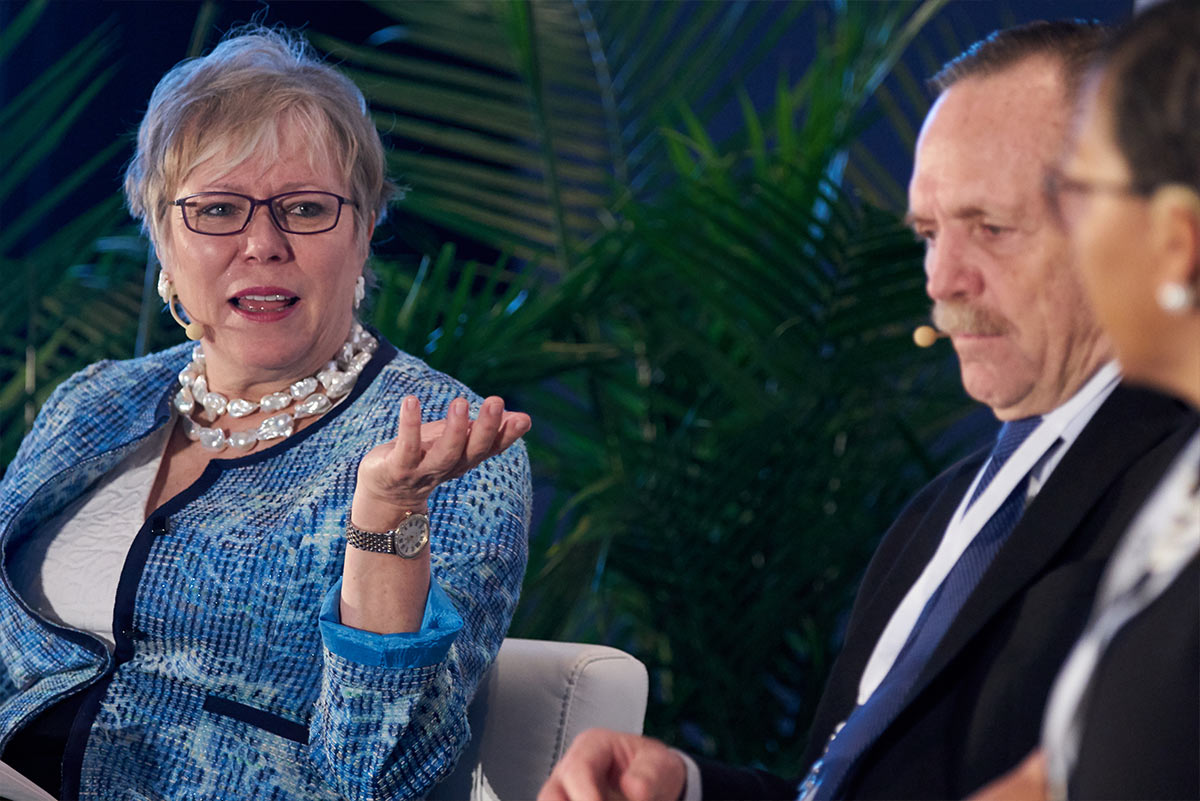Engaging Patients
DIA has been a pioneer in advocating for the patient voice for more than a decade. Since the launch of its first Patient Fellowship in 2006, DIA has brought patients to the table as equal stakeholders in numerous global patient engagement initiatives, providing fertile ground for fruitful collaborations among patients, researchers, industry, payers, and regulators.
s the call for meaning- and impactful patient engagement grows stronger, so does the push for an increasingly empirical approach to address the topic. In 2017, we continued to drive the movement towards evidence-based patient centricity and engagement across the entire healthcare ecosystem.
- We released the first findings of the 2016 multi-phase research study on patient-centric initiatives in drug development conducted in partnership with Tufts University.
- A Patient Group Advisory Council (PGAC) was established to provide a patient perspective on DIA’s patient engagement strategies
- Patients, and other stakeholders, shared fresh, multi-faceted insights on meaningful patient engagement at three key DIA events.
- Most recently, DIA entered into a collaboration with more than 30 patient-focused organizations via the International Leadership Group (PILG) of the new Innovative Medicine Initiative (IMI) PARADIGM (Patients Active in Research and Dialogues for an Improved Generation of Medicines).
Why we care: Patients have an irrefutable role in shaping the care they need; involving patients throughout the healthcare product development lifecycle helps drive better design and development, and faster approval, of therapies that deliver meaningful health improvements.
Together with Tufts University we spearheaded a collaborative, multi-phase research project in 2016 to gain insights into patient-centric initiatives in drug development and their impact on health outcomes. The results of the first phase of this study were officially released in January 2017, and showed that, when patients were engaged, clinical trial performance improved, study volunteers felt more engaged, and costs were reduced across the long-term drug development portfolio. In the next phases of this research, we will develop assessment methods and tools that will help companies operationalize their patient-centric programs by identifying areas to strengthen and further develop.
In 2017, three key DIA events brought patients together with other stakeholders to determine steps necessary for meaningful patient engagement:
- A roundtable discussion at the DIA 2017 EuroMeeting in Glasgow: Patient and industry representatives as well as representatives of DIA, IMI, EUPATI, EFPIA, and EMA discussed the need for patient engagement in the early stages of drug development (i.e. discovery and early development).
- A patient engagement DIAmond session at the DIA 2017 Global Annual Meeting in Chicago: Experts explored how to assess the impact of patient engagement and the infrastructure needed to move this new science forward.
- A two-day Metrics in Patient-Centered Drug Development workshop: This was DIA’s first “Patients Included” accredited conference that met all five clauses of the Patients Included Conference Charter, with patients being active contributors to the conference program. Building on the positive feedback and success of this conference, we will continue to offer “Patients Included” meetings in 2018, starting with the 2018 Global Annual Meeting.


In recent years, patient partnerships in healthcare product development have flourished as a direct result of the confidence and sense of autonomy patients have gained. To drive this positive movement forward, we are now collaborating with more than 30 patient-focused organizations via the International Leadership Group (PILG) of the new Innovative Medicine Initiative (IMI) PARADIGM (Patients Active in Research and Dialogues for an Improved Generation of Medicines). Scheduled to kick off in February 2018, our goal is to provide a framework for meaningful, impactful, and ethical patient engagement throughout three key decision-making points in the life cycle medicinal products: research priority setting, clinical trial design, and early dialogues with regulators and HTA bodies.

DIA PATIENT ENGAGEMENT STUDY RESULTS
Mapping the Landscape of Patient-Centric Activities within Clinical Research
Study Insights: Patient Engagement in Drug Development
Trial Return on Engagement: Quantifying Benefits of Patient-Centric Initiatives

